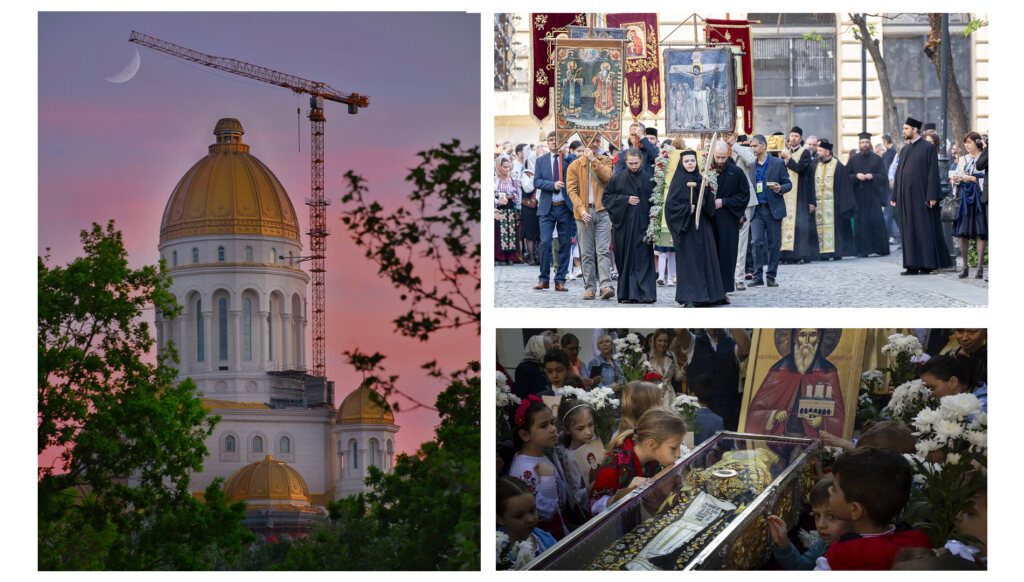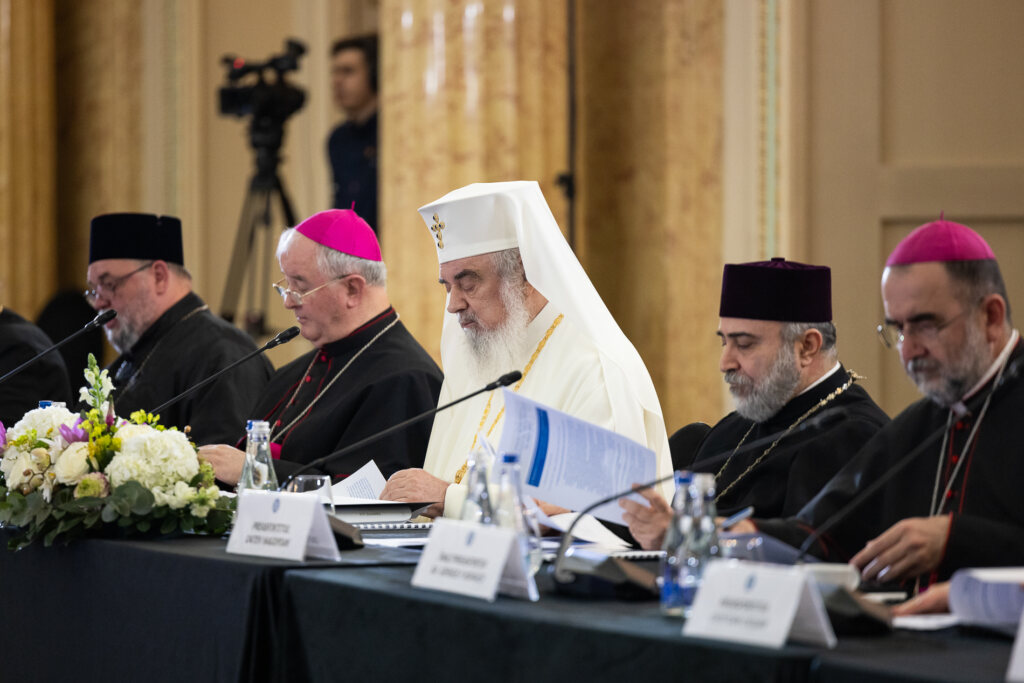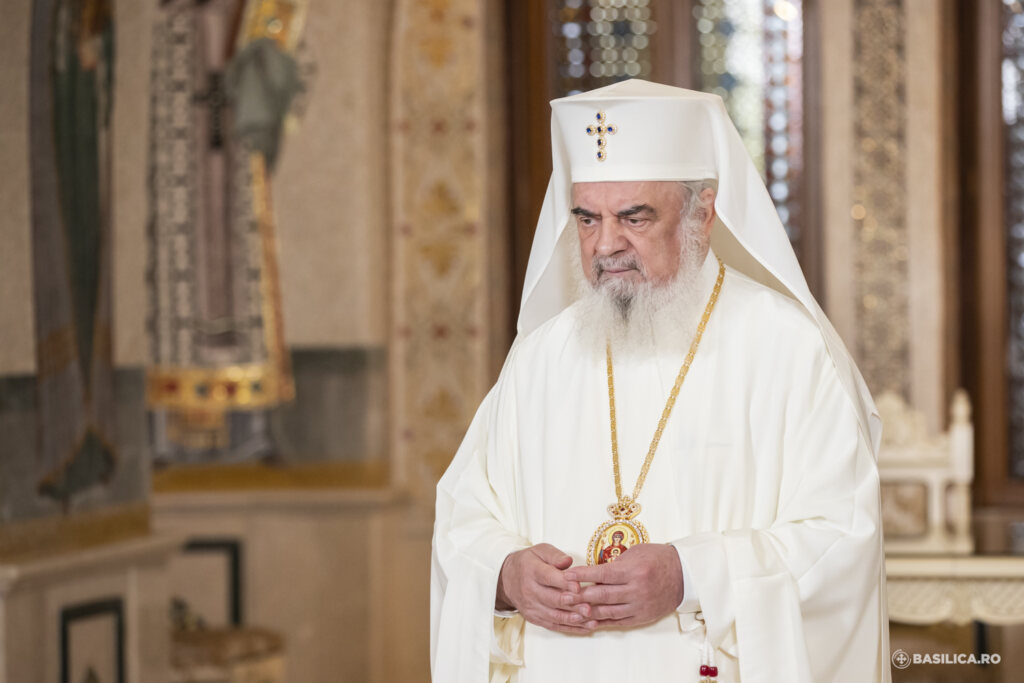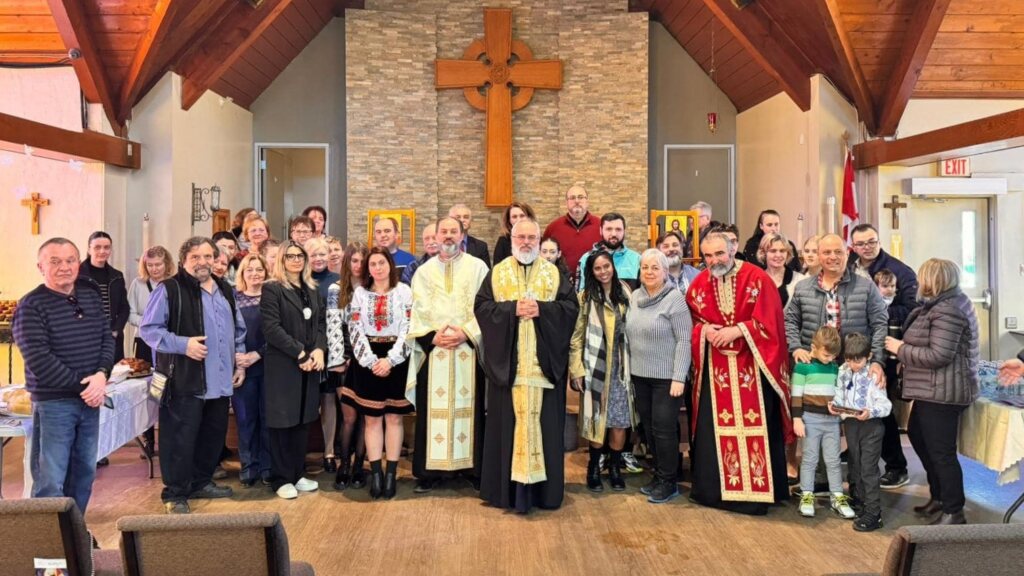Holy Martyr Aquilina
Anative of the Phoenician city of Byblos, she suffered under the emperor Diocletian (284-305). Her parents raised her in Christian piety. When the girl was only twelve years old, she persuaded a pagan friend to convert to Christ. One of the servants of the imperial governor Volusian accused her of teaching others not to follow the religion of their fathers. The girl firmly confessed her faith in Christ before the governor and said that she would not renounce Him. Volusian tried to influence the young confessor through persuasion and by flattery, but seeing her confidence, he ordered her to be tortured.
They struck her upon the face, then they stripped her and beat her with whips. The torturer asked, “Where then is your God? Let Him come and take you out of my hands”.
The saint answered, “The Lord is here with me invisibly, and the more I suffer, the more strength and endurance will He give me.”
They drilled through the martyr’s ears with heated metal rods. The holy virgin fell down as if dead. The torturer thought that the girl had actually died, and he gave orders to throw her body outside the city to be eaten by dogs.
By night a holy angel appeared to Saint Aquilina, roused her and said, “Arise and be healed. Go and denounce Volusian, so that he and his plans may come to nothing.”
The martyr went to the court of the governor and stood before Volusian. Seeing Saint Aquilina, he called for his servants and ordered them to keep watch over her until morning.
In the morning he sentenced Saint Aquilina to death, saying that she was a sorceress who did not obey the imperial decrees. When they led the saint to execution, she prayed and gave thanks to God for allowing her to suffer for His Holy Name.
A voice was heard in answer to her prayer, summoning her to the heavenly Kingdom. Before the executioner could carry out the sentence, the martyr gave up her spirit to God (+ 293). The executioner feared to disobey the governor’s orders, so he cut off her head although she was already dead.
Christians piously buried the martyr’s body. Later, her relics were taken to Constantinople and placed in a church named for her.
Troparion — Tone 4
Your lamb Aquilina, calls out to You, O Jesus, in a loud voice: / “I love You, my Bridegroom, and in seeking You I endure suffering. / In baptism I was crucified so that I might reign in You, / and I died so that I might live with You. / Accept me as a pure sacrifice, / for I have offered myself in love.” / Through her prayers save our souls, since You are merciful.
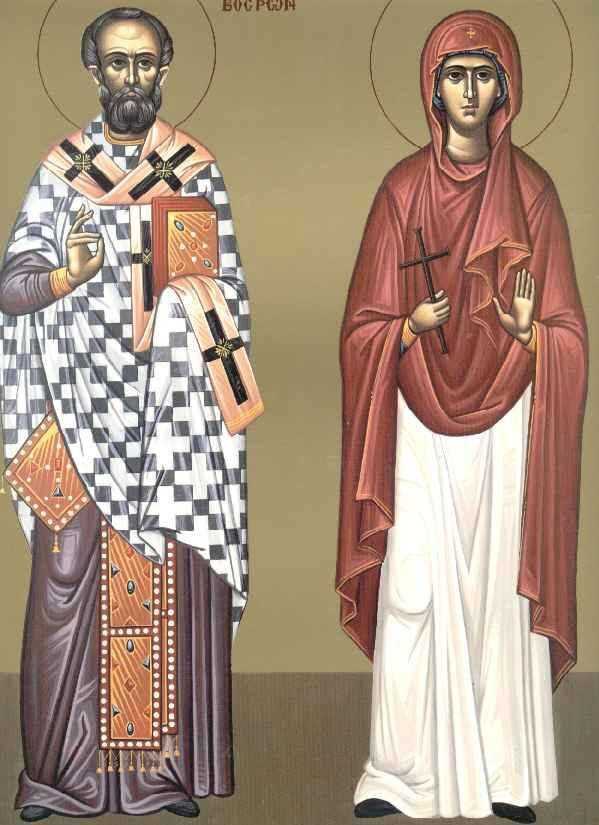
Saint Tryphillius, Bishop of Leukos
He was born in Constantinople, and he received his education at Berit (Beirut, in Lebanon). He was very intelligent and eloquent. In spite of this, the saint chose as his guide a man neither bookish nor learned, but one of conspicuous holiness: Saint Spyridon of Tremithos (December 12).
Troparion — Tone 4
In truth you were revealed to your flock as a rule of faith, / an image of humility and a teacher of abstinence; / your humility exalted you; / your poverty enriched you. / Hierarch Father Triphyllius, / entreat Christ our God / that our souls may be saved.
The emperor Constantine II (337-340) fell grievously ill, and receiving no help from the doctors, he turned to God. In a dream he saw an angel, directing him to a group of hierarchs. Pointing out two of them, the angel said that only through them could he receive healing.
Constantine issued an imperial edict, commanding the bishops to assemble. Saint Spyridon also received this order, and went to the emperor with his disciple Saint Tryphillius. The sick one immediately recognized them as the healers indicated by the angel. He bowed to them and asked them to pray for his health. Saint Spyridon with a prayer touched the head of the emperor, and he became well.
Saint Tryphillius was charmed by the beautiful palace, the majestic figure of the emperor, and the pomp of palace life. Saint Spyridon said, “Why are you astonished? Does all this make the emperor any more righteous? All of them, emperors and dignitaries alike, will die and stand together with the very poorest before the judgment seat of God. One should seek eternal blessings and heavenly glory.”
Soon Saint Tryphillius was made Bishop of Leukosia on Cyprus. He often visited with Saint Spyridon. Once, they passed through an area of vineyards and gardens of special beauty and abundance, named Parimnos. Saint Tryphillius, attracted by the beauty of nature, considered how they might explore this land. Saint Spyridon discerned the thoughts of Saint Tryphillius and said, “Why do you always think about earthly and transitory blessings? Our habitation and riches are in Heaven, for which we ought to strive.” Thus did Saint Spyridon lead his disciple toward spiritual perfection, which Saint Tryphillius attained through the prayers of his instructor. Saint Tryphillius had a charitable soul, a heart without malice, right faith and love towards all, and many other virtues.
Once, a Council of bishops assembled on Cyprus. The Fathers of the Council requested that Saint Tryphillius, known for his erudition and eloquence, address the people. Speaking about the healing of the paralytic by the Lord (Mark 2:11). in place of the word “cot” he used the word “bed”. Impatient with the imprecise rendering of the Gospel text, Saint Spyridon said to Saint Tryphillius, “Are you better than He who said “cot”, that you should be ashamed of His wording?” and abruptly he left the church.
In this way Saint Spyridon gave Saint Tryphillius a lesson in humility, so that he would not become proud of his own eloquence. Saint Tryphillius wisely shepherded his flock. From the inheritance left him by his mother, he built a monastery at Leukosia. The saint died in old age in about the year 370.
The Russian pilgrim Igumen Daniel saw the relics of Saint Tryphillius on Cyprus at the beginning of the twelfth century.
Translated into English by oca.org.


